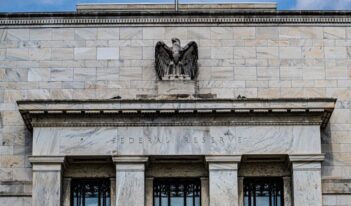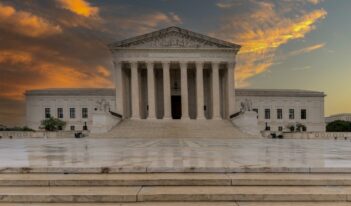
New CFPB guidance puts banks on notice that unfair business practices may be met with enforcement action.
Nearly one in six banking customers overdraw their checking accounts each year. Banks charge their customers nearly $12 billion total for these overdrafts, collecting nearly three quarters of those fees from just eight percent of households. Furthermore, people of color pay more than twice the amount in banking fees that white Americans do.
To address predatory fee structures for overdrafts and bounced checks, the Consumer Financial Protection Bureau (CFPB) issued guidance last fall that explains when banks’ fee policies likely break the law. The CFPB published both a circular and a compliance bulletin that address when the assessment of overdraft fees may constitute an unfair lending practice. Together, the two documents outline how the Bureau plans to exercise its enforcement and supervisory authority to crack down on unfair banking practices.
As a courtesy for checking customers, banks initially piloted overdraft protection programs in the late 1960s and early 1970s, in what were then known as “bounce protection programs.” By the 1990s, as customers began to use debit cards more frequently, banks started to automate their overdraft programs. They also hiked overdraft fees.
Today, most financial institutions charge a flat fee per overdraft transaction, which can be as high as $36. Overdraft programs started as a hedge against banks’ credit risk but now make up a substantial source of revenue for banks and credit unions. The CFPB even estimates that overdraft and insufficient fund fees make up close to two thirds of banks’ reported fee revenues, signaling banks’ heavy reliance on such fees.
The CFPB’s latest guidance follows a spate of enforcement actions that the Bureau has taken against unlawful overdraft practices. The Bureau recently negotiated settlements with several major lenders, for example, including with TCF National Bank and TD Bank. When the CFPB finds that fee practices penalize account holders unreasonably, the Bureau has even ordered lenders, such as Regions Bank, to both refund affected customers and pay additional penalties.
The CFPB intends its latest guidance to help both businesses and the families that they serve, according to CFPB Director Rohit Chopra. To distinguish legal from illegal fee policies, the CFPB’s guidance outlines that insufficient fund fees likely violate the Consumer Financial Protection Act’s (CFPA) prohibition on unfair business practices whenever customers “cannot reasonably avoid them.”
The CFPB’s circular addresses the question of whether overdraft and bad check fees can constitute an unfair act or practice under the CFPA, even when a bank complies with other relevant lending regulations. Answering in the affirmative, the Bureau’s memo highlights that cost-benefit analysis underlies its determination: fees are unlawful when customers cannot reasonably avoid them and when they provide no countervailing benefit either to other consumers or to competition, broadly.
The CFPB’s bulletin builds on the principles outlined in the circular and explains how the agency plans to exercise its enforcement authority. Perhaps troubling for banks, the CFPB recognizes in its bulletin that it may be difficult for banks to prove that any bounced-check or other overdraft fee may be justified, given that these fee programs typically provide no corresponding benefit to account holders.
Nevertheless, the bulletin outlines certain circumstances in which the CFPB might determine a fee program to be sufficiently narrowly tailored to address bad actors and therefore lawful. The bulletin offers, for example, the possibility that fees for repeated deposits of bad checks or fees for depositing unsigned checks may be compliant with the CFPA because those fees are reasonably avoidable by consumers. The bulletin also notes that other mechanisms to deter bad actors remain available. Banks still may review depositors’ accounts, pursue criminal penalties for repeat offenders, or develop more tailored fee policies to penalize those who deposit bad checks.
Although these two CFPB guidance documents only target two types of junk fees—unreasonable bounced check fees and unreasonable overdraft fees—consumer advocates have heralded the agency’s action. The CFPB, furthermore, has estimated that policy changes on these two fee types alone could mean $3 billion in savings for consumers.
Not everyone supports the CFPB’s newest guidance, however. Rob Nichols, President and CEO of the American Bankers’ Association, argued that the fees in question are already clearly disclosed by banks to consumers. Nichols also criticized the CFPB’s regulatory process, characterizing the Bureau’s announcement as an example of “regulating by press release.”
Senior White House economists, however, have highlighted how junk fees can weaken competition, raise costs for consumers and businesses, and hit the most vulnerable Americans the hardest. They also commended recent regulatory efforts by the Federal Trade Commission to tackle junk fees more broadly.
President Joseph R. Biden himself has lauded the CFPB’s announcement, saying that his Administration’s action on junk fees across several sectors would “immediately start saving Americans collectively billions of dollars in unfair fees.”
As the Federal Reserve Board continues to battle inflation, a little extra cash in consumers’ pockets may go a long way.



